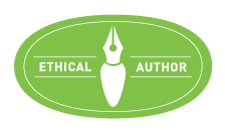
A phenomenon is scaring me.
No, not just SCROTUS, although he’s a big part of it.
There’s a peculiar anti-word, anti-thought movement spreading through our societies, which opposes reason and embraces slogan. Nothing new there, a blunt cudgel of opinion-bashing has its historical precedents.
Which should be terrifying by example. I’m not telling you where to look. I don’t need to.
Go check a random oppressive regime. How far down the list do you find ‘silence the thinkers’?
Here’s a mini test:
Name three regimes whose policy was to slaughter intellectuals.
Name three governments who imprison opponents without trial.
Name three countries which spread misinformation and propaganda to sway their population into supporting their own agenda.
(Hint: you probably live in one and this is why we need a free press, even if some of them are gits.)
One of the scariest phrases I heard was Michael Gove’s comment during the Brexit campaign: “Oh I think people have had enough of experts”.
These inexpert, self-interested campaigners for anything that will get them up the career ladder speak for ‘The People’. One of their base tools is arguing against argument. It’s the equivalent of sticking your fingers in your ears and shouting your own position over and over until ‘The People’ (or ‘Folks’ if you want the current Imbecile-in-the-White-House version) can repeat it verbatim.
This is a crass, patronising assumption on every level.

Firstly, ‘The People’ enjoy argument, rationale or reason. Engaging and discussing issues in person often leads to a less fossilised position. Online is a different matter. Comment is as dehumanising, reductive and debasing as a scrawled cartoon of a bear shitting in the woods. But it still works. Make us yell at each other and we take our eye off the argument. Sit us in a bar to chat and it’s a whole different game.
Secondly, simple words – make, great, take, ours, us, we, sad, bigly(?), danger, wall – is a reductive and banal way to communicate. Joined-up thinking requires a sense of cause and effect. People – yes, even ‘The People’ – are aware the credit crunch and subsequent drain on the working and middle-class was not due to immigration, fake news or or the liberal elite, but rampant pocket-lining by the very same people who tell you ‘You Ne-ver Had It So Good’. (One syllable at a time, folks.)
Thirdly, attacking people who dare to show some more articulacy than bellowing ‘Lock her up!” are derided for being elitist, intellectual and not of ‘The People’. It’s much more difficult to reduce the problems inherent in destabilising the EU to a tidy ALL CAPS phrase on a banner.
Lastly, how highly do you rate your supporters when you stand up in front of them and lie? Lie loudly, repeatedly and with bombast in the conviction they will believe it. If this is your methodology, your rationale must be that ‘The People’ are truly stupid.
We are not. You, me, all of us will be remembered by our thoughts, our words and our actions.
In a time like this, words are the bridge between thought and action.
They could not be more vital.
![]()









